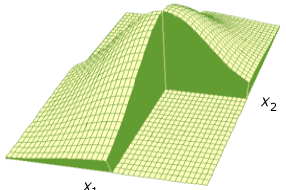AI CS 6300 Course Information
This course will introduce the basic ideas and techniques underlying
the design of intelligent computer systems. A specific emphasis will
be on the statistical and decision-theoretic modeling paradigm, with
applications ranging from diagnosis to game-playing to robotics. This
course is built around several multi-part programming projects, based
on the game of Pacman.
Coursework will consist of two kinds of assignments. Programming
projects will be in Python. Written homeworks will be given most weeks.
Prerequisites:
This course has substantial elements of both programming and
mathematics, because these elements are central to modern AI.
- CS 3505 (Prior programming experience is
expected; although we don't expect that you know Python, we do expect
you to be able to pick it up rapidly.)
- CS 3130 Engineering Probability and Statistics
- CS 4150 Algorithms
Expectations: You are expected to come to class prepared by
reading the suggested sections of the book and the slides ahead of
time.
Textbook
 There is no required textbook for this course. Recommended are:
Artificial Intelligence: A Modern
Approach (Third Edition)
There is no required textbook for this course. Recommended are:
Artificial Intelligence: A Modern
Approach (Third Edition)
by Stuart Russell and Peter Norvig. Prentice Hall, 2009.
Be sure you have the Third Edition. It is BLUE, not GREEN or
BURGUNDY: the other editions are not sufficient.
We will also occasionally have readings from:
Reinforcement
Learning: An Introduction
by Richard S. Sutton and Andrew G. Barto. MIT Press, 1998.
This book is available online.
Substantial parts of the course materials are taken
from CS 188 at
Berkeley. Students are invited to look at their on-line lectures for
alternative presentation of the materials.
Grading
 Overall grades will be determined from:
Overall grades will be determined from:
- Homework assignments (44%)
- Programming projects (21%)
- Exams 1-3 (35%)
Assignments (homework and projects) must be turned in
electronically by midnight on the listed due date. With the
exception of HW06, assignments may be turned in up to two days late.
A penalty of 10% per business day will be assessed. Hence the weekend
counts as one day.
There will be 3 equally weighted exams, covering the 3 major
portions of the class and comprising 35% of the grade. Exam 3 will take
place during the Final Exam time slot, but will be given the same
amount of time as exams 1 and 2.
There is a moratorium on complaints about grading, etc., of one
week.
Course Policies
Cheating: Any assignment or exam that is handed in must be your
own work. However, talking with one another to understand the
material better is encouraged. Recognizing the distinction between
cheating and cooperation is very important. If you copy someone
else's solution, you are cheating. If you let someone else copy your
solution, you are cheating. If someone dictates a solution to you,
you are cheating. Everything you hand in must be in your own words,
and based on your own understanding of the solution. If someone helps
you understand the problem during a high-level discussion, you are not
cheating. Any student who is caught cheating will be given an E in
the course and referred to the University Student Behavior Committee.
Please don't take that chance - if you're having trouble understanding
the material, please let us know and we will be more than happy to
help.
School of Computing Cheating Policy: http://www.cs.utah.edu/wp-content/uploads/2014/12/cheating_policy.pdf (Links to an external site.)
College guidelines
Campus safety
 There is no required textbook for this course. Recommended are:
Artificial Intelligence: A Modern
Approach (Third Edition)
There is no required textbook for this course. Recommended are:
Artificial Intelligence: A Modern
Approach (Third Edition) Overall grades will be determined from:
Overall grades will be determined from: